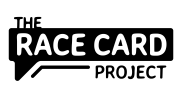Lise (rhymes with ‘please’),
Austin, TX.
My 6-word essay was originally “What kind of name is that?”– a question (both the polite and impolite versions) I’m regularly asked. My answer is something like this:
“Well, my last name is Indian (yes, like from India)–sort of. My father’s family is from India, but the name changed when they moved to Trinidad. Trinidad? It’s in the Caribbean–no, not near Mexico. My first name is a typical French Canadian name–pronounced Leez, like ‘please’, without the ‘P.’ No, it’s not ‘lice.’ You don’t have to say “what were your parents thinking when they named you ‘lice’,” because that’s not my name. And it’s not pronounced Lisaay (stop trying to exoticfy me.) Yes, I was born in Montreal. Yes, I’m Canadian, eh (sarcastic smile.) No really, I’m Canadian.”
But my name is more than this unintentionally rehearsed reply. My name connects me to a story that precedes me and will continue when I’m gone. My name tells a great story–an epic tale of adventure, (sometimes unacceptable) love, hope and courage that spans over a century and almost covers the globe. Here’s an abridged version:
(As I understand it) when my paternal great grandparents migrated from India to the Caribbean island of Trinidad as agricultural laborers, they diluted their Hindu names and accepted a more West Indian version. To this day, I don’t know what that original Indian name was– maybe Raghubir; maybe Raghbirsingh. Some Indians insist that my family is from the north of India, while others swear we are from the south. My grandfather was born in Trinidad and given a Christian first name so that he would fit in to the predominantly Christian population of the British colony. For reasons that no one is sure of, my grandfather and each of his siblings, although they all had the same parents, had different surnames. My grandfather’s chosen first and last names: Alfred Raghbir.
As a young man, Alfred met Nellie; a beautiful, light-skinned creole girl, with “soft- hair.” Her family was middle-class, with yellow skin, likely descendants of French plantation owners and illicit affairs. Nellie didn’t think she could marry a man whose family ate curried dahl off banana leaves while they sat on the floor. But she did. They had six children. Their eldest son, my father, eventually moved to Montreal, Canada to study at McGill University. An excellent education would provide limitless opportunities for him. Since his grandparents arrival from India almost 100 years earlier, aside from short holidays, he was the first member of his family to leave the Caribbean.
My maternal great grandmother met my great grandfather when she was fifteen (maybe older, maybe younger.) He was married, with children and a wife who had come with him from Portugal, to Trinidad. As a girl, my great grandmother and her mother (who came from one of the smaller West Indian islands, probably some generations after the arrivals from Africa) took care of the Portuguese man’s wife, his children and his other needs. The Portuguese man and my great grandmother had four children together. He took care of her and her half black, half Portuguese children– one of whom was my grandmother.
In her late teens, my grandmother met a red- skin boy who was good with his hands. He had a girl’s first name and a French last name pronounced nothing like the French would pronounce it– in Trinidad, Auguste is pronounced ‘O’Geese.’ He was part black, Carib or Arawac (“native Indians of the colony” as my mother would say) and his last name would have come through some kind of French heritage. Was it from a slave owner 200 years ago? Or more recently? We don’t know. My grandmother’s mother (the same woman who had four children with the married Portuguese man) didn’t approve of her daughter’s love interest. She hoped her daughter would do better than a mechanic. But the illegitimate child of the Portuguese family man and his servant, married the mechanic and they had 10 children. One of whom is my mother– who, after receiving her higher education in the UK, followed my father to Montreal.
I was born and raised in Montreal– first generation Canadian. My first name is a very common French-Canadian name. Lise. My parents say they simply liked the name–it wasn’t motivated by the hope that I’d fit in to a French- Canadian culture. Which is good, because as many first generation Canadians know, we only fit, because we were all different. I went to school in French and English and most of my friends spoke a third language when I was growing up. I don’t remember being asked about my name while I lived in Montreal. There were those with names far stranger than mine.
Fast forward to adulthood when, after I left Montreal for grad school in Boston (in search of my own limitless opportunities), I took a job in NYC and eventually ended up in Philadelphia where I met a nice Italian-American man. I followed him to Austin, TX, where we live with our young daughter. Her first name is Auguste (pronounced the French, not Trinidadian way) and she has an Italian last name. Because of the appearance her mixed heritage has given her, she will undoubtedly be asked, “What kind of name is that?” I hope she’s proud of the great story her name tells.






